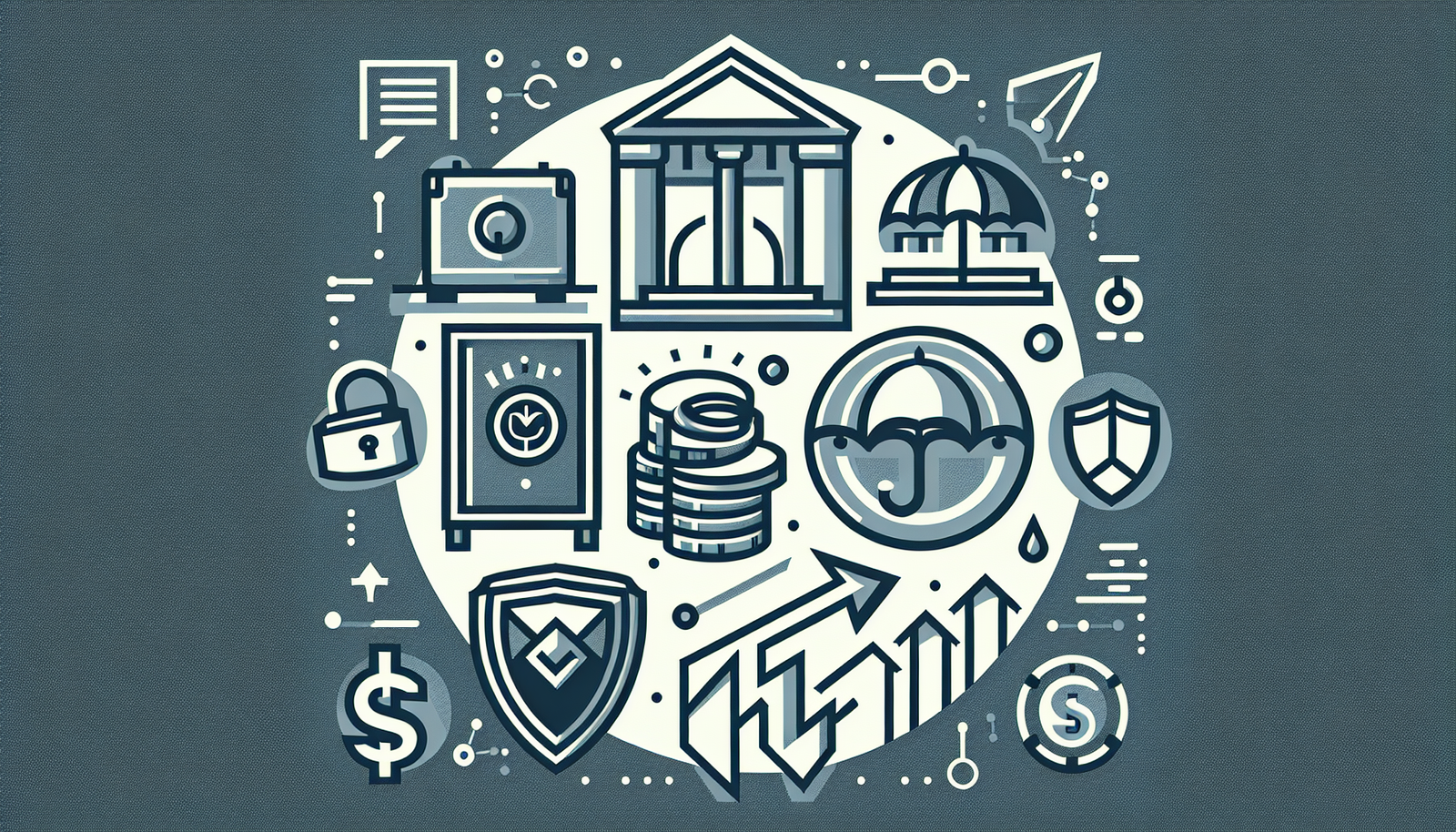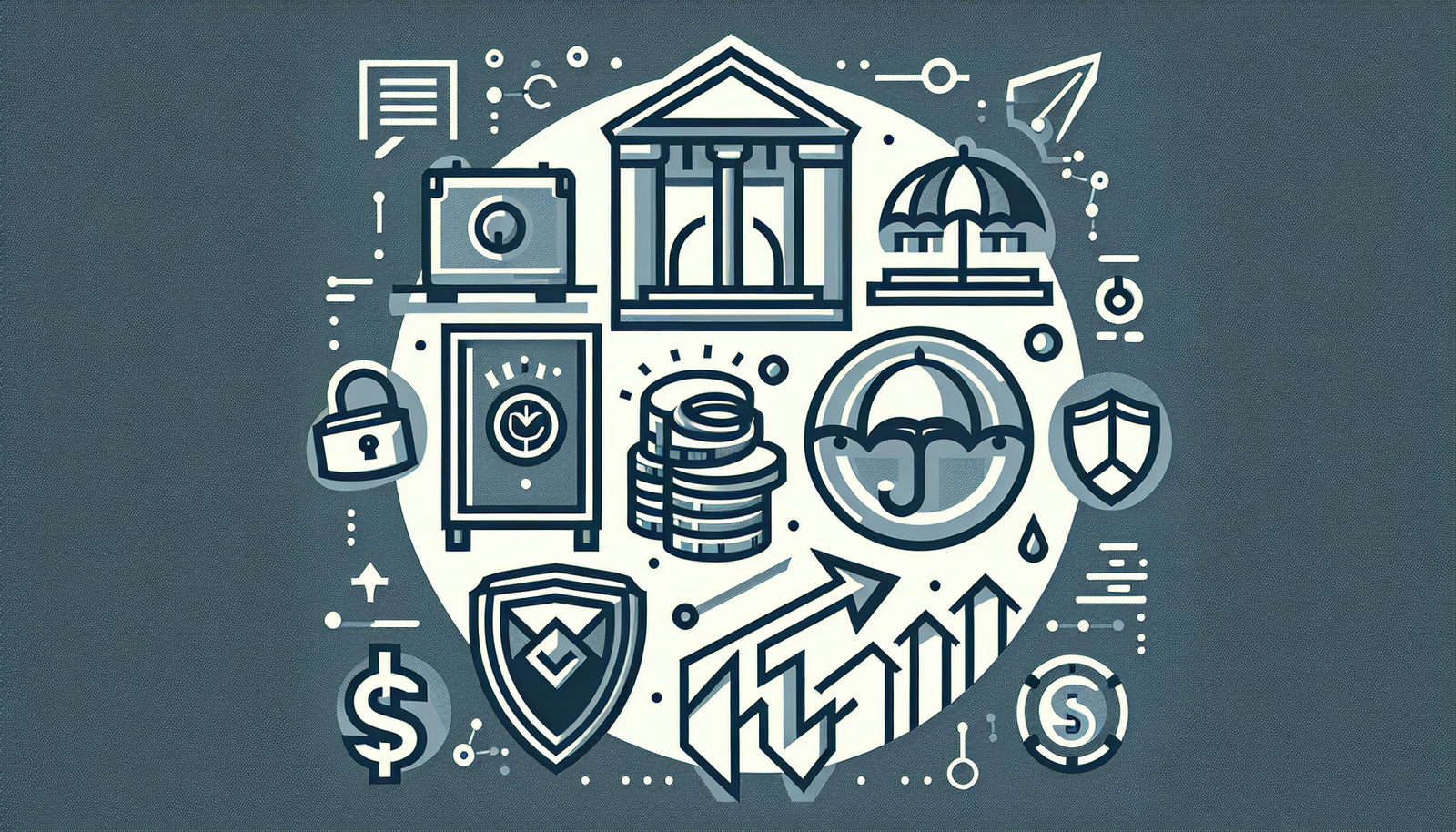
Every name tells a story. Yours whispers an intriguing tale, brimming with depth and understanding. Let’s turn the pages and explore the “Name of Financial Institution Meaning” – a riveting tale of significance, etymology, and the role it plays in the wider financial landscape. You are about to embark on this enlightening journey that will enrich your understanding, leaving you more informed than before, as we explore the marrow of names in the financial industry.

Definition of a Financial Institution
Basic Definition
Imagine a vast river of money flowing through society’s veins. The institutions that collect, distribute, and regulate the flow of this valuable liquid gold are known as financial institutions. Financial institutions are the conduits that move money from parties who have surplus funds to those who need them. They act as intermediaries between customers, transforming financial assets into more preferred forms and performing key economic activities.
Role in Economy
Just as bridges connect different sides of a river, financial institutions connect disparate sectors of an economy. They provide a vital linkage between depositors and borrowers, savers and investors, insurers and the insured. By acting as a bridge, they enable money to flow smoothly and efficiently, lubricating the wheels of the economy, facilitating the growth of businesses, and stimulating economic growth.
History and Evolution
The story of financial institutions is as old as the invention of money. Initially, pawnbrokers and moneylenders fulfilled the role of financial intermediaries. However, over time, as societies became more complex and interconnected, there was a need for more organized and regulated institutions. Today’s financial institutions have evolved into complex entities that play a vital role in our globalized world economy.
Types of Financial Institutions
Commercial Banks
Commercial banks are like the local grocery store. Just as you go to the grocery store to buy and stock up on essentials, commercial banks provide loans, accept deposits, and offer basic investment products to individuals and businesses.
Investment Banks
If commercial banks are local grocery stores, then investment banks are akin to wholesalers. They help corporations and governments raise capital through issues of securities, facilitate mergers and acquisitions, provide research and advisory services, and trade securities for their clients and for themselves.
Credit Unions
Think of credit unions as community kitchens. They are owned and operated by their members and aim to provide affordable and fair banking services. From lending and credit to offering savings, credit unions promote the economic wellbeing of their members.
Insurance Companies
Imagine insurance companies as protective shields. They protect you from financial loss, whether it be from an accident, theft, or damage. By pooling risks, they provide a cloak of financial security and peace of mind.
Mutual Funds
Mutual funds are like buffets at a restaurant. They pool the money of several investors to invest in a diversified portfolio of stocks, bonds, or other securities, providing small investors with access to professionally managed and diversified portfolios of equities, bonds, and other securities.
Pension Funds
Pension Funds serve as piggy banks for your retirement. They are set up by companies or governments to provide income during the golden years. They gather, grow, and safeguard the retirement benefits on behalf of the participants.
Functions of Financial Institutions
Lending and Credit
Financial institutions play the role of kind-hearted relatives who lend you money when times are tough. They provide loans and credit to people and businesses, stimulating economic growth and facilitating the financial dreams and needs of their constituents.
Deposits and Savings
Just as a reservoir collects water, financial institutions collect people’s savings. They offer various savings products like time deposits, recurring deposits, and saving accounts, providing secure and liquid havens for people’s hard-earned money.
Payment Services
Financial institutions are the postmen of the money world. They provide payment services such as cheque encashments, electronic fund transfers, and credit and debit card services, enabling seamless and secure transactions.
Investment Services
They are the wise old advisors who guide you on your money matters. Financial institutions offer investment services, helping individuals and businesses make informed decisions about where and how to invest their money.
Risk Management Services
They offer risk management services, acting as protective shields that guard individuals and businesses against financial risks. These services include insurance, derivatives transactions, and other risk mitigation activities.

Components of a Financial Institution Name
Title
The title forms the face of a financial institution. Just as your name sets you apart from others, the title of a financial institution gives it a distinctive identity in the market.
Legal Form of Organization
The legal form of a financial institution is often a part of its name, indicating whether it is a Corporation, Limited Company, Partnership, or Credit Union. This component provides a hint about the financial institution’s ownership structure.
Geographic Designation
Many financial institutions use geographic designations in their names to highlight their region of operation. Such names convey a sense of community and regional pride, and often resonate with local customers.
Unique Identifier
A unique identifier helps in further differentiating a financial institution, especially in a crowded market. This could be anything from the name of a founder to the type of customers it serves.
Factors Influencing a Financial Institution’s Name
Business Purpose
The business purpose of a financial institution often plays a crucial role in naming it. The name might reflect the key function of the institution or the market it serves.
Geographic Market
The geographic market of a financial institution is another influential factor. Institutions often choose names that resonate with the local culture, traditions, or geography.
Services Offered
The services provided by a financial institution can also dictate its name. An institution offering retirement services might use words like “trust,” “pension,” or “retirement” in its name.
Regulatory Environment
The regulatory environment also influences the name. Name choices often have to comply with legal requirements and guidelines set by regulatory bodies.
Change in Financial Institution Names
Name Change Processes
Changing a financial institution name is cautiously considered and strategically implemented process. It involves various steps from brainstorming new names, conducting market testing, seeking regulatory approvals, to finally rebranding all customer-facing elements.
Reasons for Name Change
M&A activity, substantial change in services, brand revitalization, or geographic expansion are some reasons that might trigger a change in a financial institution’s name.
Impact of Name Change on Customers and Operations
A name change is like a facelift. While it can be beneficial in breathing fresh life into the brand and reflecting its evolution, it might also cause disruption and confusion among customers and impact operations.
Role of Names in Branding and Marketing of Financial Institutions
Creating an Image and Identity
A financial institution’s name is its verbal logo, creating an image and identity. By suggesting qualities or associations like reliability, trustworthiness, or innovation, it can shape perceptions and build emotional connections with customers.
Building Customer Loyalty
A well-chosen name can contribute to building customer loyalty. It helps create an overall customer experience that drives loyalty and helps forge long-term relationships.
Differentiation from Competitors
A name also serves as a tool for differentiation from competitors, conveying unique selling points or key characteristics that set the institution apart from its rivals.
Public Perception of Financial Institution Names
Influence on Customer Trust and Confidence
The name of a financial institution has a profound influence on customer trust and confidence. Names that convey stability, reliability, and integrity can foster trust and confidence among customers.
Effect on Customer Attraction and Retention
An engaging and resonant name can attract customers and play a significant role in customer retention. Remember, a rose by any other name might not smell as sweet to your customers!
Role of Name in Customer Experiences
The role of the institution’s name in customer experiences cannot be underestimated. Positive or negative associations tied to a name can strongly color a customer’s experience of the financial institution.
Legal and Regulatory Aspects of Financial Institution Names
Legal Restrictions on Names
Legal restrictions on names ensure they are not misleading, deceptive, or confusingly similar to existing names. The name should be distinctive, describing the nature of business, geographical area, or key offerings.
Role of Regulatory Authorities
Regulatory authorities supervise the naming process. They set guidelines, review proposed names, and approve them based on certain criteria, ensuring legal compliance.
Implications of Non-compliance
Non-compliance with naming regulations can have severe repercussions. These can range from penalties and injunctions to reputational damage and loss of customer trust.
Case Studies: The Stories Behind Some Notable Financial Institution Names
JP Morgan Chase
Named after its famous financier, JP Morgan, and following merges with Chase Manhattan Bank, Chemical Bank, and others. It’s a name that echoes its rich history and legacy in the financial industry.
Goldman Sachs
Eponymously named, Goldman Sachs was founded by Marcus Goldman and Samuel Sachs. This name personifies the founders’ commitment to providing high-quality financial services.
Prudential Financial
Named after “prudence,” symbolizing carefulness and wise managing of resources. The name reflects its commitment to help customers grow and protect their wealth.
State Bank of India
The State Bank of India, an iconic name that evokes the institution’s central role in the Indian economy and its strong relationship with the Indian government.
Bank of America
Bank of America signifies the idea of serving the entire nation. The name embodies an aspiration to meet the diverse financial needs of customers across the USA.

